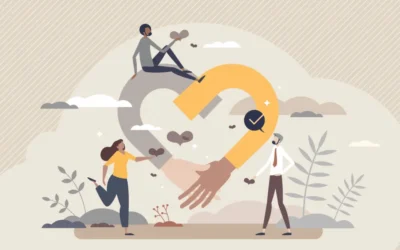As a fellow, a part of my work at WISE is to build the entrepreneurial collective of women weavers. Among other things, this entails investing my efforts in a network that can be leveraged for market generation. One of the ways of achieving this is to facilitate participation in exhibitions for the weavers and introduce them to as many potential customers as possible. This is about one such customer visit.
We were going for an introductory meeting between the weavers and the director of a well-known hotel chain. It required us to travel from Maheshwar to Indore. Knowing that Alka*, one of the members, wasn’t confident of travelling back alone, we planned in such a way that ensured Alka would not have to return unaccompanied. However, thanks to a last-minute change, the woman who had to come back with her, had to cancel the trip altogether, leaving just the two of us – me with an unsuspecting Alka.
As we reached Indore, I knew that I had to take a call, to either ask her to travel back by herself or to figure a way out to ensure that she does not go unaccompanied. It was lack of planning on my part, and hence, I couldn’t ask her to return alone. At the same time, Alka had made it clear that will not travel unaccompanied. Even though I had to stay back and work on a couple of things, going back with her appeared to be the more responsible thing to do.
The bus ride was not unsafe, I had done it countless times. But what if something happened to her on the way back? What if it turns out unsafe today? So, I went.
Two weeks later, a conversation between my mentor and I, about something totally unrelated, led her to mention this incident. “I would have never done that”, she said. Confused with that remark, I asked her to elaborate. Wasn’t I being responsible? She took a pause and asked, “Tell me something… do you want to be nice or do you want be right?”. I explained how I thought I was doing the right thing not because I did not trust Alka’s ability to go alone but but because I felt that I should be considerate of what she wanted.
She further added that though her safety is our responsibility, it was not really at risk. The probability of a mishap was quite low and the ‘what if’ that led me to make my decision, should not have been given so much importance. I was reminded that my job is to make women like Alka feel independent even if they learn it the hard way.
In her opinion, I should have made Alka realize that she can reach back home alone, even if it meant that she would resent me for a few days, weeks or a lifetime.
This shift in how I was looking at my responsibilities and what was expected, changed my interactions with women. More importantly, this exposed a blind spot that needed to be addressed if I wanted to keep doing the work I do – to get rid of my fears and trust that things will be fine. Sure, being safe and travelling with her was not wrong, but an undue emphasis on the ‘what ifs’ can come at a huge cost sometimes. In this case perhaps, it was Alka’s chance to be independent.
Changing the norms that are deeply entrenched, it takes discomfort and is far from a smooth ride. Whether what I did was right is a mental debate that is still not settled (maybe there is an alternative to teaching lessons the hard way), but this incident clarified what it means to strive for equality. It had never occurred to me that my perceived sense of responsibility would preclude someone’s chance to be independent.
It also pushed me to relook at the various levels at which one could work on women’s empowerment. It’s not just about an increased bargaining power through access to finance or building better entrepreneurial skills but one needs to go deeper and identify more nuanced opportunities for facilitating empowerment. While the skills required for the former can be things like learning participatory methods of conducting meetings, the latter demands a personal change – letting go of your fears, and shifting from what you want to do to what you need to do.
This incident also made me wonder whether being considerate and being right is always mutually exclusive and whether a trade-off between the two has to be necessarily made. Does being ‘nice’ truly hinder the chance of personal growth? Like most of the questions India Fellow journey has made me ask myself, this, too, does not have a straight answer. Neither do I surely know how empowerment can be facilitated. However, one thing is clear, that this journey is made up of varied experiences that induce such subtle yet complex realizations that won’t lead to all the definitive answers but will make you ask the right questions.
*Name changed to maintain confidentiality




0 Comments